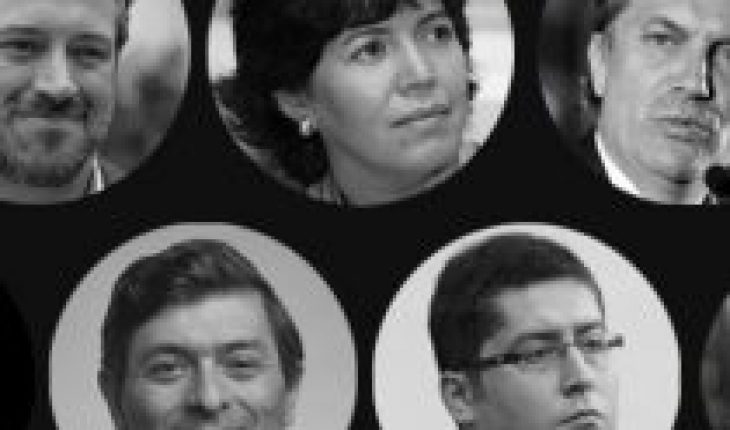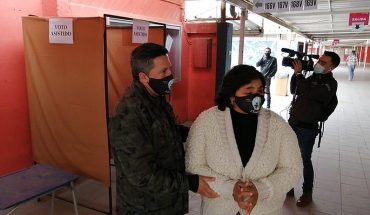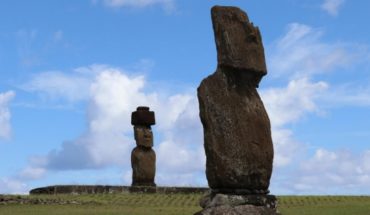
Legal primaries, a citizen consultation, a marathon collection of sponsorships and the direct route of some through their parties. Of everything there was in the registration of presidential candidacies and that will have 9 letters on the ballot of November, a process that was not without controversy and casualties. The right in this pass was ordered with 2 candidates, while the left and center left added 7, rekindling the fear of dispersion, as happened in the last presidential.
While some have expressed hope that the formula of regional governors in the Metropolitan Region will be repeated, leaving out the right, today – admitted several in the opposition – that possibility is further away with the large number of presidential cards that are located from the center to the left. The faith is placed in the second round, where they bet to sort themselves after the winner of the sector, yes, amid mistrust, disagreements and distances between the different forces of the left and center left. In the sector, they warned that, if a broad understanding is not reached, the risk of giving continuity to the right in La Moneda “could be inevitable,” especially if the 2017 thing is repeated, where the dispersion of the opposition, which was not ordered after Alejandro Guillier, ended up giving the victory to Sebastián Piñera.
“The programmatic coherence that the opposition candidates may have is going to be relevant,” warned a member of the now former Constituent Unity, a space from where another leader emphasized that “neither can we stick with a cold tail a political pact, but we can agree that nobody wants another right-wing government, and for that we have to organize ourselves.”
To the automatic registration of Gabriel Boric (I approve Dignity) and Sebastián Sichel (Chile Vamos) for winning the legal primaries, senator Yasna Provoste joined, who positioned herself as the card of the center-left after a citizen consultation. The senator for Atacama did not attend the Servel and her party did, but instead went to the PS headquarters where a postponed photo was concretized, marked by a stressed atmosphere, with relations that are not the best, as the former managers of Paula Narvaez and Carlos Maldonado have admitted. All after a scenario where there were no major gestures of unity, given that Provoste chose to wait for the results in Vallenar.
And despite the fact that there were several tailspins, Marco Enriquez-Ominami did not give up and registered, for the fourth time, as the PRO’s presidential candidate, at the cost of his party breaking off relations with the constituent unity until then. At the congressional level, that ended with the withdrawal of Senators Alejandro Guillier and Alejandro Navarro from the re-election, and with a lone PRO on the political board. His new presidential adventure hung in the balance until days before, when it was not clear whether or not he would regain his political rights, as part of the investigation into the OAS and SQM case.
This even opened a controversy between the Constitutional Court (TC) and the Electoral Service (Servel), when the former returned his political rights and, the latter, gave the green light to his incorporation into the register, but after this election. Finally, hours before the start of registrations, servel announced that it would abide by the ruling of the TC, then allowing the candidacy of ME-O.
Also through his party’s direct route, and repeating the experience of the 2017 presidential election, José Antonio Kast, of the Republican Party, joined in, seeking to capture the hardest right-wing vote and contest sebastian Sichel’s space. Eduardo Artés, of Unión Patriótica, who had already run unsuccessfully in the last election, and who seeks to contest the votes of the left, was also repeated.
Former partners Franco Parisi and Gino Lorenzini, who had a political divorce that meant the departure of the founder of Felices y Forrados from the People’s Party (PDG), who finally lined up behind Parisi, who for now is out of Chile, will be on the ballot. The People’s Party emerged from the sum of the movement “The Power of the People, Franco Parisi Social Movement”, which backed it in 2017, and Felices y Linerados (FyF), a company that made recommendations for changes of pension funds and that closed after the approval of the bill that establishes new transparency requirements, in addition to strengthening the responsibilities of market players, i.e. that those who carried out such activity should be subject to regulations. From there, FyF turned to be a political movement, bringing candidacies to the Constitutional Convention, which did not materialize, and later joining Parisi in the People’s Party. Lorenzini accused a mafia within the PDG to raise funds and a trout election of regional candidacies, burying the alliance with Parisi.
The last to register was the Mapuche candidate Diego Ancalao, an independent supported by The People’s List (LdP), who was until the last moment gathering the necessary 33 thousand sponsorships. LdP’s support came after a measurement through sponsorships of servel, where Ancalao managed to reach – on certain days – more support than Ingrid Conejeros and Soledad Mella, in a process that took place after the break in two of The People’s List. A candidacy that will also contest votes to the left, specifically Gabriel Boric, since he was part of the Citizen’s Left, whose militants, after several reorganizations, joined the Broad Front. Before that, he was a member of the Christian Democracy until the age of 21 and was a student leader at the University of the Frontier.
Those who did not reach the finish line
Before 8 p.m., trade unionist Cristián Cuevas announced the withdrawal of his candidacy, since he did not manage to gather the signatures, after La Lista del Pueblo dissided from his appointment, despite having the majority of votes in two internal consultations made by ldp political managers.
Cristián Contreras – known as Doctor File – gave up his presidential aspiration and landed it in a senatorial candidacy for the Metropolitan Region. Meanwhile, Tomás Jocelyn-Holt, one of the first to register for servel, did not reach the goal either, although he implored on his social networks to be backed up with signatures.
The controversial note was put by candidate Sergio Tapia Ojeda, a magellan professor who claimed to have registered his candidacy for La Moneda, and even gave a press point on the outskirts of servel. However, from that organization ruled out that his name was on the payroll and finally was left out of the presidential race. According to Tapia, they did not let their 5 sponsors in. Meanwhile, according to servel, he never asked for time to register nor arrived with those 5 supports.





